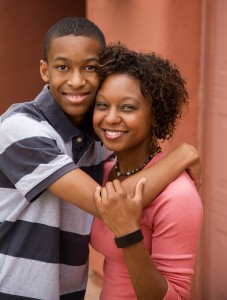Do you know this feeling?
“When (you, as a teenager) took a problem to (an adult) as we all remember, (the adult) was very likely to explain what you understood already, to add a great deal of information which you didn’t want, and say nothing at all about the thing that was puzzling you. I have watched this from both sides of the net; for when, as a teacher myself, I have tried to answer questions brought me by pupils, I have sometimes, after a minute seen that expression settle down on their faces which assured me that they were suffering exactly the same frustration which I had suffered from my own teachers.”
—C.S. Lewis, Reflections on the Psalms
 As a teenager, did you feel heard by adults when your heart was churning with questions? Did you only get a few words out before an adult springboarded off your simple wonderings to launch a monologue? Did you feel free to pose ideas contrary to church speak? Or would you face a diatribe of “correct theology”?
As a teenager, did you feel heard by adults when your heart was churning with questions? Did you only get a few words out before an adult springboarded off your simple wonderings to launch a monologue? Did you feel free to pose ideas contrary to church speak? Or would you face a diatribe of “correct theology”?
Albert Schweitzer wrote, “The teenage years are sometimes a process of unpleasant fermentation working itself off and leaving the wine clear. My religious instruction came through Pastor W. Although I respected him, I kept myself closed up. The good man never suspected what was stirring in my heart. His instruction was in itself excellent, but it gave no answer to a great deal of what my inner self was concerned with. How many questions I would have gladly asked him, but that was not allowed us. He believed that in submission to faith, all reasoning must be silenced.”
—Albert Schweitzer, Memoirs of Childhood and Youth
 Because of this experience, Schweitzer believed that much goes on in the heart of a youth that most adults don’t realize. The problem is—kids don’t have a safe place to sort it out.
Because of this experience, Schweitzer believed that much goes on in the heart of a youth that most adults don’t realize. The problem is—kids don’t have a safe place to sort it out.
As parents, teachers, or adult friends of teens we can offer that context—an open atmosphere where kids are free to air their questions, struggles, and doubts. Spiritual wrestling is a normal part of adolescence. After all, this process is precisely what leads us to a stronger faith.
Christianity can stand up to the test.
 When was the last time someone—anyone—sat down and pursued your heart, asked only a few questions to get things started, and then listened, really listened to you?Continue reading
When was the last time someone—anyone—sat down and pursued your heart, asked only a few questions to get things started, and then listened, really listened to you?Continue reading










